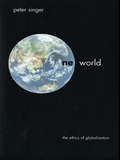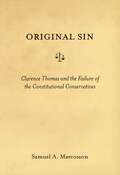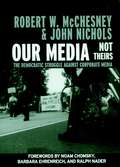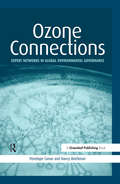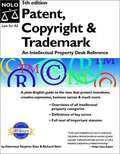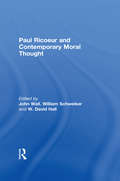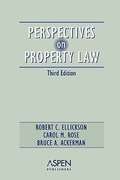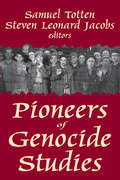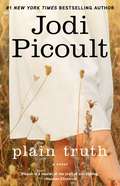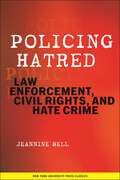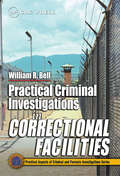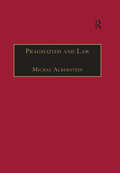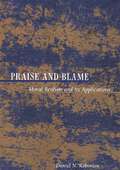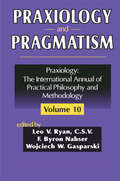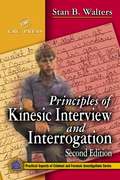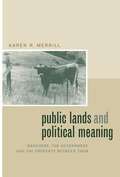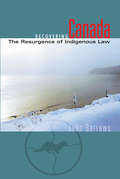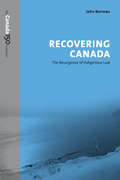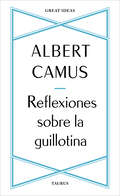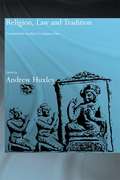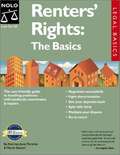- Table View
- List View
One World: The Ethics of Globalization
by Peter SingerKnown for his original and courageous thinking on matters ranging from the treatment of animals to genetic screening, Peter Singer now turns his attention to the ethical issues surrounding globalization. In this provocative book, he challenges us to think beyond the boundaries of nation-states and consider what a global ethic could mean in today's world. Singer raises novel questions about such an ethic and, more important, he provides illuminating and practical answers. The book encompasses four main global issues: climate change, the role of the World Trade Organization, human rights and humanitarian intervention, and foreign aid. Singer addresses each vital issue from an ethical perspective and offers alternatives to the state-centric approach that characterizes international theory and relations today. Posing a bold challenge to narrow or nationalistic views, Singer presents a realistic, new way of looking at contemporary global issues-through a prism of ethics.
Original Sin: Clarence Thomas and the Failure of the Constitutional Conservatives (Critical America #33)
by Samuel A. MarcossonOriginalism is the practice of reviewing constitutional cases by seeking to discern the framers' and ratifiers' intent. Original Sin argues that the "jurisprudence of original intent," represented on the current Supreme Court by Justices Antonin Scalia and Clarence Thomas, has failed on its own terms. Attempts to determine the framers' intent have not brought greater determinacy and legitimacy to the process of constitutional interpretation. Instead, the method has been marked by the very flaws—including self-interested reasoning and the manipulation of doctrine—that originalists argue marred the jurisprudence of the judicial "activists" of the Warren Court. Original Sin brings a rigorous review of the performance of the "new originalists" to the debate, applying their methodology to real cases. Marcosson focuses on the judicial decisions of Clarence Thomas, an avowed originalist who nevertheless advocates "color blind" readings of the Constitution which are at odds with the framers' ideas concerning anti-miscegenation and other laws. After critiquing what he sees as a troubling use of originalism and explaining why it has failed to provide a consistent basis for constitutional decision-making, the author goes on to offer an alternative approach: one that lends greater legitimacy to the Court's interpretations of the Constitution.
Our Media, Not Theirs: The Democratic Struggle Against Corporate Media (Open Media Series)
by Noam Chomsky Robert W. Mcchesney John Nichols Barbara Ehrenreich Ralph NaderOur Media, Not Theirs! The Democratic Struggle Against Corporate Media examines how the current media system in the United States undermines democracy, and what we can do to change it. McChesney and Nichols begin by detailing how the media system has come to be dominated by a handful of transnational conglomerates that use their immense political and economic power to saturate the population with commercial messages. Further, the authors provide an analysis of the burgeoning media reform activities in the United States, and outline ways we can structurally change the media system through coalition work and movement-building: the tools we need in order to battle for a better media.
Ozone Connections: Expert Networks in Global Environmental Governance
by Penelope Canan Nancy ReichmanIt is difficult to think of a more significant example of international cooperation to address a problem that threatened the health and wellbeing of the entire planet than the 1987 Montreal Protocol for the Elimination of Ozone-Depleting Substances. This breakthrough in international environmental governance has proved to be an extraordinary success beyond rhetoric or promises. In a dozen years, this international agreement went from an understanding of the need to act in a precautionary manner for mutual benefit to a successful worldwide effort to eliminate chemical substances harmful to our protective ozone layer. The production and consumption of most ozone-depleting substances has now been phased out in developed countries, with developing countries not far behind. What happened and why is of tremendous importance for those looking for guidance in the future, particularly those now involved in hugely complicated negotiations on climate change. The success of the Montreal Protocol has been linked to many factors such as political will, treaty flexibility and the recognition of equity issues raised by developing countries. While comprehensively analysing all of these success factors, Ozone Connections goes on to suggest that a social organization of global governance as typified by the protocol's Technical and Economic Assessment Panel (TEAP) was a unique – but replicable – decisive factor. The book argues that we need to understand how the implementation of complex global environmental agreements depends on the construction and exploitation of social connections among experts who act collectively to define solutions to environmental problems. This highly original and provoking thesis synthesises some of the more exciting social science concepts and methods, while refining our basic understanding of environmental social change and providing policy-makers with concrete success factors to replicate. This book will be essential reading for academics in the fields of sociology, political science, international relations, network studies, human communication, motivation, collaboration and leadership, as well as the burgeoning interdisciplinary field of environmental studies. Businesses will also find many applications for practical use. Finally, the many directly transferable lessons from ozone layer protection make this book a key addition to the growing literature on climate change.
Patent, Copyright and Trademark (5th edition)
by Richard Stim Stephen EliasThis work offers information in plain language on basics of intellectual property law and related legal terms. It explains how to protect intellectual property and how intellectual property law affects the Internet.
Paul Ricoeur and Contemporary Moral Thought
by John Wall; William Schweiker; W. David HallThis book explores and proposes new avenues for contemporary moral thought. It defines and assesses the significance of the writings of French philosopher Paul Ricoeur for ethics. The book also explores what matters most to persons and how best to sustain just communities.
Perfect Match: Perfect Match, Second Glance, And My Sister's Keeper
by Jodi PicoultWhat does it mean to be a good mother? For career-driven assistant district attorney Nina Frost, the question inspires pangs of guilt familiar to all parents torn by the demands of home and office. But whereas most parents lie awake at night vividly conjuring the worst scenarios that could befall their children in their absence, Nina lives the reality of such crises -- and it's her job to do something about them. Nina Frost prosecutes child molesters -- and in the course of her everyday work, she has endured the frustration of seeing too many criminals slip through the system and walk free. A man as methodical and careful as his wife is instinctive and mercurial, Caleb Frost is a stonemason who glories in his ability to construct with his own hands the physical barriers that will keep out the unwanted -- and protect all that is precious within. But even the strongest walls cannot guard Nina and Caleb from the shattering discovery that their own beloved son has been sexually abused. Five-year-old Nathaniel is the only one who knows the identity of his assailant -- but in the initial fallout of his trauma, he's been left mute, unable to speak a single word. Knowing the futility of trusting the courts to exact justice for Nathaniel, and ripped apart by a maddening sense of helplessness, Nina finds herself in a grip of rage she can't deny -- no matter the consequence, whatever the sacrifice. What does it take to be a good mother? How far can a person go...and still live with herself? What happens if one's absolute truths and convictions are turned upside down? Forging new ground in her unique territory of morally complex suspense fiction, bestselling author Jodi Picoult delivers her most soulful and intimate novel to date -- and portrays what happens to a family when a wheel comes off, when the domestic unit begins to careen and veer, when the vestments of ordinary life are forfeited to unspeakable horrors. From its provocative opening to the astonishing and revelatory finale, Perfect Match enters the raw and private realm of a parent's heart, and ultimately questions our assumptions about family, security, and love.
Perspectives on Property Law (3rd edition)
by Robert C. Ellickson Carol M. Rose Bruce A. AckermanThis reader continues its track record of success of combining fascinating and essential readings and materials pertaining to property law with author commentary. Traits the authors continue to build upon: class copy medium essays and articles articulate important points related to the major issues in property law, that are accompanied by introductory text, notes, and questions to deepen students' understanding of the ideas contained in the well-known and respected author team article regarding commons and the over-patenting of the human genome, Pipes' article on how the lack of private property contributed to the decline of the Soviet Union, Desoto's article on titling in developing nations, and more.
Pioneers of Genocide Studies
by Samuel Totten Steven Leonard JacobsFrom the early efforts that emerged in the struggle against Nazism, and over the past half century, the field of genocide studies has grown in reach to include five genocide centers across the globe and well over one hundred Holocaust centers. This work enables a new generation of scholars, researchers, and policymakers to assess the major foci of the field, develop ways and means to intervene and prevent future genocides, and review the successes and failures of the past.The contributors to Pioneers of Genocide Studies approach the questions of greatest relevance in a personal way, crafting a statement that reveals one's individual voice, persuasions, literary style, scholarly perspectives, and relevant details of one's life. The book epitomizes scholarly autobiographical writing at its best. The book also includes the most important works by each author on the issue of genocide.Among the contributors are experts in the Armenian, Bosnian, and Cambodian genocides, as well as the Holocaust against the Jewish people. The contributors are Rouben Adalian, M. Cherif Bassiouni, Israel W. Charney, Vahakn Dadrian, Helen Fein, Barbara Harff, David Hawk, Herbert Hirsch, Irving Louis Horowitz, Richard Hovannisian, Henry Huttenbach, Leo Kuper, Raphael Lemkin, James E. Mace, Eric Markusen, Robert Melson, R.J. Rummel, Roger W. Smith, Gregory H. Stanton, Ervin Staub, Colin Tatz, Yves Ternan, and the co-editors. The work represents a high watermark in the reflections and self-reflections on the comparative study of genocide.
Plain Truth: A Novel
by Jodi PicoultJodi Picoult has touched readers deeply with her acclaimed novels, such as Keeping Faith and The Pact. Gifted with "a remarkable ability to make us share her characters' feelings" (People), Picoult now explores the complex choices of the heart for a young Amish woman -- the compelling journey of discovery for an urban lawyer who befriends and protects her. The small town of Paradise, Pennsylvania, is a jewel in Lancaster County -- known for its picture-postcard landscapes and bucolic lifestyle. But that peace is shattered by the discovery of a dead infant in the barn of an Amish farmer. A police investigation quickly leads to two startling disclosures: the newborn's mother is an unmarried Amish woman, eighteen-year-old Katie Fisher. And the infant did not die of natural causes. Although Katie denies the medical proof that she gave birth to the child, circumstantial evidence leads to her arrest for the murder of her baby. One hundred miles away, Philadelphia defense attorney Ellie Hathaway has achieved an enviable, high-profile career. But her latest court "victory" has set the sands shifting beneath her. Single at thirty-nine and unsatisfied with her relationship, Ellie doesn't look back when she turns down her chance to make partner and takes off for an open-ended stay at her great-aunt's home in Paradise. Fate brings her to Katie Fisher. Suddenly, Ellie sees the chance to defend a client who truly needs her, not just one who can afford her. But taking on this case challenges Ellie in more ways than one. She finds herself not only in a clash of wills with a client who does not want to be defended but also in a clash of cultures with a people whose channels of justice are markedly different from her own. Immersing herself in Katie Fisher's life -- and in a world founded on faith, humility, duty, and honesty -- Ellie begins to understand the pressures and sacrifices of those who to live "plain." As she peels away the layers of fact and fantasy, Ellie calls on an old friend for guidance. Now, just as this man from Ellie's past reenters her life, she must uncover the truth about a complex case, a tragic loss, the bonds of love -- and her own deepest fears and desires. Moving seamlessly from psychological drama to courtroom suspense, Plain Truth is a triumph of contemporary storytelling. Jodi Picoult presents a fascinating portrait of Amish life rarely witnessed by those outside the faith -- and discovers a place where circumstances are not always what they seem, where love meets falsehood, and where relationships grow strong enough to span two worlds.
Policing Hatred: Law Enforcement, Civil Rights, and Hate Crime (Critical America #15)
by Jeannine BellExplores the intersection of race and law enforcement in the controversial area of hate crimeHigh-profile hate crimes like the torture-murder of Matthew Shepard and the dragging death of James Byrd have drawn the nation’s attention, but there are thousands of other individuals who are attacked because of their race, religion, or sexual orientation each year. This study of hate crimes challenges common assumptions regarding perpetrators and victims: most of the accused tend to be white, while most of their victims are not.Policing Hatred is an in-depth ethnographic study of how hate crime law works in practice, from the perspective of those enforcing it. It examines the ways in which the police handle bias crimes, and the social impact of those efforts. Bell exposes the power that law enforcement personnel have to influence the social environment by showing how they determine whether an incident will be charged as a bias crime.Drawing on her unprecedented access to a police hate crime unit, Bell’s work brings to life the stories of female, Black, Latino, and Asian American detectives, in addition to those of their white male counterparts. Policing Hatred also explores the impact of victim’s identity on each officers handling of bias crimes and addresses how the police treat defendants’ First Amendment rights. Bell’s vivid evidence from the field argues persuasively for the need to have the police diligently address even low-level offenses, such as vandalism, given their devastating cumulative effects on society.
Practical Criminal Investigations in Correctional Facilities (ISSN)
by William R. BellAN INSIDE LOOK INTO INVESTIGATING THE MOST VIOLENT SUB-CULTURE IN THE WORLDOnce an offender is behind bars, many people believe that he is no longer a threat to society. However, the felonious activities of confined inmates reach out into society every day. These inmates run lucrative drug operations, commit fraud, hire contract murders, an
Practical Guide to Handling Motor Insurers' Bureau Claims
by Nick Jervis Judy DawsonThe 1999 Uninsured Drivers Agreement applies to accidents in which an uninsured driver was involved, which have occurred after 1 October 1999. Limitation periods for cases under the agreement will start to expire from 1 October 2002, after which procedural defects cannot be overcome by discontinuing and reissuing. To avoid satisfying any unpaid judgments, the Motor Insurers Bureau (MIB) will be able to act on any failure by claimants solicitors to comply with the strict terms of the Agreement. In order to prepare for this, those dealing with Motor Insurers Bureau claims must have watertight systems in place in order to avoid potential negligence claims. This book is an essential guide to preparing such procedures, and includes a series of standard letters, checklists and diary entries to guide a practitioner through each aspect of such a claim.The guide deals with the detailed provisions of the 1999 Agreement and the Revised Notes for Guidance (2002 ). The difficult tasks of handling claims against uninsured drivers and dealing with the MIB are addressed in a practical manner. All relevant recent legislation is discussed, as well as claims against untraced drivers and methods of discovering road traffic insurers to prevent the necessity of involving the MIB. Guidance is also given regarding setting up a department to deal with MIB claims. The book will be indispensable for any legal executive or solicitor dealing with MIB claims, particularly those handling road accident personal injury claims and all those managing teams of injury specialists. To effectively handle Motor Insurers' Bureau claims, the letters and checklists in this book are essential. To save you time, all the documents (letters, checklists, questionnaires and forms) contained in the book are available as Word documents for a fee of 10. The complete package can be sent to you by email or on disk by post.
Pragmatism and Law: From Philosophy to Dispute Resolution (Law, Justice and Power)
by Michal AlbersteinPragmatism and Law provides a textual reading of the American legal discourse, as it unfolds through various genres of pragmatism, which evolve and transform during the twentieth century. The historical narrative, which the book weaves, traces the transformation of the pragmatic idea from the forefront of philosophical intellectual inquiries at the turn of the twentieth century to a common sense lawyers’ practical rule of action at the turn of the twenty-first century. During this sequence, a fresh look at American history and legal history in particular is offered through the emphasis on recurring discursive structures which assume incommensurable treatments of basic liberal notions like justice, politics, and truth. Underlying the writing is an interpretative mode of inquiry, based on European post-structural methodologies, while claiming to represent their next intellectual phase. This contemporary mode of inquiry is that of a reading which insists on healing through the paradoxes. It is the same mode that sets, in the author’s view, the updated interpretative model of dispute resolution studies.
Praise and Blame: Moral Realism and Its Applications (New Forum Books #27)
by Daniel N. RobinsonHow should a prize be awarded after a horse race? Should it go to the best rider, the best person, or the one who finishes first? To what extent are bystanders blameworthy when they do nothing to prevent harm? Are there any objective standards of moral responsibility with which to address such perennial questions? In this fluidly written and lively book, Daniel Robinson takes on the prodigious task of setting forth the contours of praise and blame. He does so by mounting an important and provocative new defense of a radical theory of moral realism and offering a critical appraisal of prevailing alternatives such as determinism and behaviorism and of their conceptual shortcomings. The version of moral realism that arises from Robinson's penetrating inquiry--an inquiry steeped in Aristotelian ethics but deeply informed by modern scientific knowledge of human cognition--is independent of cognition and emotion. At the same time, Robinson carefully explores how such human attributes succeed or fail in comprehending real moral properties. Through brilliant analyses of constitutional and moral luck, of biosocial and genetic versions of psychological determinism, and of relativistic-anthropological accounts of variations in moral precepts, he concludes that none of these conceptions accounts either for the nature of moral properties or the basis upon which they could be known. Ultimately, the theory that Robinson develops preserves moral properties even while acknowledging the conditions that undermine the powers of human will.
Praxiology and Pragmatism
by F. NahserVolume l0 in this distinguished series addresses two distinct but interrelated philosophical movements, which exemplify different approaches to the study of ethics. Praxiology, an unique Central European philosophical movement, embraces the study of purposeful and conscious action and the elements essential to each action, act, and causative act. Pragmatism, an uniquely American philosophical movement, was founded by Charles S. Peirce and William James, and is based on the meaning of conceptions, defined in their practical bearings that guides actions and measures them by practical consequences of belief. The chapters in this volume are grouped in a section on Praxiology and one on Pragmatism. Each section defines the historical origins of their respective philosophical movements, describes their methodology, and interrelates their impact on "human conduct" and contemporary society. The section on Praxiology presents for the first time in English a seminal study, "The ABC of Practicality," written in l972 by Tadeusz Kotarbinski, the father of modern Polish praxiology. Wojciech W. Gasparski offers an interpretative analysis of Praxiology. Daryl Koehn explores the nature of practical judgment and Timo Airaksinen applies praxiological efficiency in professional ethics. The section devoted directly to Pragmatism includes scholarly contributions by eight academics on the relevance of pragmatism to management (Juan Fontrodona), business ethics (Sandra Rosenthal), law ( Fred Kellogg), and pragmatic inquiry (F. Byron Nahser). The contribution of Max Scheler to pragmatism (Manfred Frings) and the influence of William James on business ethics(Dennis McCann) are groundbreaking contributions to the study of pragmatism. The volume also includes a teaching model for a classroom application of pragmatism (Jack Ruhe), and concludes with an evaluation of the renaissance of interest in pragmatism in Europe (Jacek Sojka). Leo V. Ryan, C.S.V., professor of management, DePaul University, is past president of the Society for Business Ethics. He is co-editor of Human Action in Business (Vol. 5) and Business Students Focus on Ethics (Vol. 8) of the Praxiology series. F. Byron Nahser is chairman and CEO, Globe Group, Chicago, the originator of Pathfinder Pragmatic Inquiry Method and author of Learning to Read the Signs: Reclaiming Pragmatism in Business. Wojciech W. Gasparski is professor of humanities at the Institute of Philosophy and Sociology, the Polish Academy of Sciences, Warsaw, and editor-in-chief of the Praxiological series. He has published numerous volumes and over two hundred articles and conference papers.
Principles of Kinesic Interview and Interrogation (ISSN)
by Stan B. WaltersHow do you interpret a person‘s behavior during their interview? Some people say it‘s an innate quality that can‘t be taught. But anyone who‘s read Stan Walters Principles of Kinesic Interview and Interrogation knows that is FALSE. The overwhelming success of the first edition and the numerous success stories credited to the book prove that
Property Law: Rules, Policies and Practices (Third Edition)
by Joseph William SingerHailed as a “vast, superb history [that] relates Scotland’s past over a dozen millennia” (Kirkus Reviews), Magnusson draws on a great deal of modern scholarship to redefine a nation’s history. He charts the long struggle toward nationhood, explores the roots of the original Scots, and examines the extent to which Scotland was shaped by the Romans, the Picts, the Vikings, and the English. Encompassing everything from the first Mesolithic settlers in 7000 B.C. to the present movements for independence, Scotland: The Story of a Nation is history on an epic level, essential reading for anyone interested in the rich past of this captivating land.
Public Lands and Political Meaning: Ranchers, the Government, and the Property Between Them
by Karen R. MerrillThe history behind the recurring "sagebrush rebellions" in the American West, showing how (before environmentalists entered the fray) ranchers and the feds struggled over the uses of public lands, from the days when ranchers wanted more government support to the virulent anti-federal position that remains.
Recovering Canada: The Resurgence of Indigenous Law
by John BorrowsCanada is covered by a system of law and governance that largely obscures and ignores the presence of pre-existing Indigenous regimes. Indigenous law, however, has continuing relevance for both Aboriginal peoples and the Canadian state. In his in-depth examination of the continued existence and application of Indigenous legal values, John Borrows suggests how First Nations laws could be applied by Canadian courts, and tempers this by pointing out the many difficulties that would occur if the courts attempted to follow such an approach. By contrasting and comparing Aboriginal stories and Canadian case law, and interweaving political commentary, Borrows argues that there is a better way to constitute Aboriginal / Crown relations in Canada. He suggests that the application of Indigenous legal perspectives to a broad spectrum of issues that confront us as humans will help Canada recover from its colonial past, and help Indigenous people recover their country. Borrows concludes by demonstrating how Indigenous peoples' law could be more fully and consciously integrated with Canadian law to produce a society where two world views can co-exist and a different vision of the Canadian constitution and citizenship can be created.
Recovering Canada: The Resurgence of Indigenous Law
by John BorrowsCanada is covered by a system of law and governance that largely obscures and ignores the presence of pre-existing Indigenous regimes. Indigenous law, however, has continuing relevance for both Aboriginal peoples and the Canadian state. In his in-depth examination of the continued existence and application of Indigenous legal values, John Borrows suggests how First Nations laws could be applied by Canadian courts, and tempers this by pointing out the many difficulties that would occur if the courts attempted to follow such an approach. By contrasting and comparing Aboriginal stories and Canadian case law, and interweaving political commentary, Borrows argues that there is a better way to constitute Aboriginal / Crown relations in Canada. He suggests that the application of Indigenous legal perspectives to a broad spectrum of issues that confront us as humans will help Canada recover from its colonial past, and help Indigenous people recover their country. Borrows concludes by demonstrating how Indigenous peoples' law could be more fully and consciously integrated with Canadian law to produce a society where two world views can co-exist and a different vision of the Canadian constitution and citizenship can be created.
Reflexiones sobre la guillotina
by Albert CamusEl breve pero gran ensayo del Nobel de Literatura, Albert Camus, contra la pena de muerte en Francia: uno de los textos más poderosos y persuasivos jamás escrito contra este castigo. A lo largo de la historia, algunos libros han cambiado el mundo. Han transformado la manera en que nos vemos a nosotros mismos y a los demás. Han inspirado el debate, la discordia, la guerra y la revolución. Han iluminado, indignado, provocado y consolado. Han enriquecido vidas, y también las han destruido. Taurus publica las obras de los grandes pensadores, pioneros, radicales y visionarios cuyas ideas sacudieron la civilización y nos impulsaron a ser quienes somos. Este poderoso texto, uno de los más hermosos y persuasivos que escribió Albert Camus, sitúa el respeto a la vida humana por encima de la necesidad de cumplimiento de la ley. Sus argumentos contra la violencia de Estado y las penas ejemplares tienen plena vigencia hoy, y conforman una obra clave para entender el pensamiento ético del premio Nobel.
Religion, Law and Tradition: Comparative Studies in Religious Law
by Andrew HuxleyThis book brings together two scholarly traditions: experts in Roman, Jewish and Islamic law, an area where scholars tend to be familiar with work in each area, and experts in the legal traditions of South and East Asia, which have tended to be less interdisciplinary. The resulting mix produces new ways of looking at comparative law and legal history from a global perspective, and these essays contribute both to our understanding of comparative religion as well as comparative law.
Renters' Rights: The Basics (3rd edition)
by Janet Portman Marcia StewartRenters fed up with difficult roommates, absent landlords and thoughtless neighbors have a new place to turn. This Legal Basics book, bursting with legal and practical advice, covers tenants' rights in all 50 states.
Renters’ Rights: The Basics (3rd edition)
by Janet Portman Marcia StewartRenters fed up with difficult roommates, absent landlords and thoughtless neighbors have a new place to turn. This Legal Basics book, bursting with legal and practical advice, covers tenants' rights in all 50 states.
